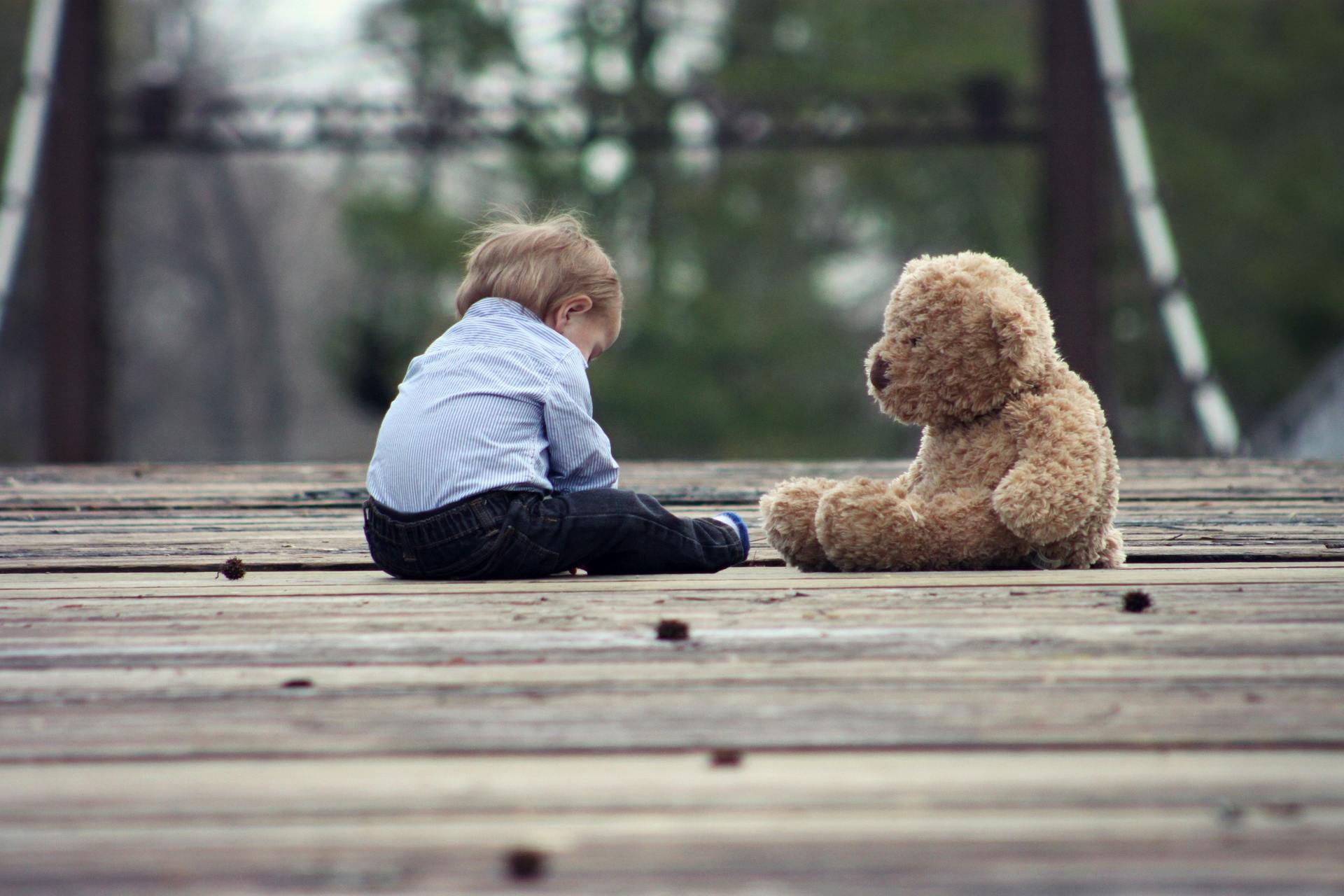Family Life
7 min Read
My Toddler Hates Me

March 11, 2011
Family Life
7 min Read

March 11, 2011

With the recent birth of my second son, Josh, I was fully prepared … or so I thought. We had a bassinet, baby clothes laundered in sensitive detergent all folded and ready to go in his new dresser. But I was caught off guard: after spending three days in hospital and bringing home the baby, something had changed. My first-born son, Ari, who became a big brother at all of 14-and-a-half months, had turned on me.
“Ari!” I shout with glee at the sight of my son playing baseball in our basement. I hold my arms open wide for a hug. Instead, Ari gives me a passing glance and keeps on playing. It is as if I’m not there.
“Ari,” I repeat. “Can Mama have a hug?” He still isn’t interested. My arms drop to my sides and hang numbly. I’m confused and hurt, but still haven’t grasped the magnitude of the situation. It takes a few more days of him shouting “Dada Dada!” instead of “Mama Mama!” and running excitedly to our new babysitter, Aurora, instead of to me before I finally understand: Ari hates me. I gave him a brother, and now he is giving me the shaft.
“He doesn’t love me anymore,” I cry to my husband, Shawn, with whom Ari has become obsessed. It is now “Dada Dada” instead of “Mama Mama” who he wants in the middle of the night; “Dada Dada” he screams for first thing in the morning; and “Dada Dada” who gets all the melt-every-single-bone-in-your-body hugs in which he gently rests his cheek on your shoulder, wraps his arms around your neck and pats your back with his soft, pillowy hands.
“That’s silly,” Shawn assures me. “Of course he loves his Mama.”
I admit that a tornado of postpartum emotions is wreaking havoc, but Ari’s disregard is one thing I’m not imagining. It is real, and it hurts.
Does Ari feel betrayed by my three-day disappearance from our home? Is he angry that I’m often seen holding another little person? I replay the events of the last few days in my mind, but can’t make sense of them. Ari visited me every day while I was recovering, and I’m making a conscious effort to pay special attention to him during what I know will be a difficult transition from an only child to big brother. Still, I don’t understand. How could 14.5 months of bonding mean nothing to him?
We’d been inseparable; joined at the Baby Bjorn. We went grocery shopping together, to music classes, and even swimming. I taught him to roll by example and to crawl by shuffling along on my hands and knees. I was there for him in the middle of the night and at the first crack of light in the morning. We’d even travelled to Australia and back together on the same chair! How could the love of my life suddenly have turned against me?
I leaf through What to Expect in the First Year and What to Expect in the Toddler Years for even a fragment of advice. These are usually my go-to books, but there isn’t a single page of information that hints at my problem. Sure, there is a tidbit or two about bringing home baby and how children often resent the new addition to the family. I’ve also been told by other parents to expect Ari to take his anger out on his brother by hitting and biting. According to my mom, even I was guilty of violently shaking my brother’s bassinet when I was a toddler and he was a newborn.
But nothing in my readings or conversations with family and friends had suggested the possibility of a small child being mad at his mother. Is Ari’s behaviour normal? How can I win him over again? Should I buy him some toys? Let him have ice cream for breakfast and chocolate for lunch?
Confused and wounded, I turn to our pediatrician, Dr. Moshe Ipp, on staff at Toronto’s SickKids Hospital. (And yes, I have him on speed dial!)
“It is not uncommon for children to act out against their new sibling,” he explained. “You might find that Ari is aggressive with the baby, manhandles him, and even hits him.”
He says that resentment is equally common no matter the age of the child, but its expression may vary. “A three-year-old has more awareness and better verbal skills and is likely to use these to announce his resentment directly to the baby and the parents. An 18-month toddler who does not have the verbal skills and who is already dealing with the ‘terrible twos’ will express his feelings by having more tantrums, being negative, whining, and throwing food. Regression in development is common, such as wanting to be in a diaper again, bed wetting, soiling underwear, requesting a pacifier or to drink from a bottle again.”
I got all that, but this was not my exact situation. “But he’s mad at me,” I say to Dr. Ipp. “Ari smiles at the baby and even hugs him. He seems fine with Josh. Why does he hate me?”
“You won’t read this anywhere,” says Dr. Ipp. “But it is my experience that mothers bear the brunt of their kids’ anger for the rest of their lives. At various points as they grow up, you will wonder why your child is so angry with you, but it’s almost physiological or biological.”
This I haven’t heard! He says that since mothers are typically more nurturing, children know that it is safe to be upset with their mother because their mother will always love them.
“Even when they pull your strings and you get mad, your kids will know that you will love them. Brace yourself. You need to develop a thick skin and be tough. Kids always find fault with mothers,” says Dr. Ipp.
He tells me it could take “days, weeks, or months” for Ari to display affection toward me again. “Tell Ari you love him again and again. Remind him how special he is. Make him feel important and cared about. Involve him in as much as possible so that he is part of the ‘team’ taking care of the baby.”
Dr. Ipp’s advice gives me the strength and mindset to trudge on. Despite being told not to lift anything heavy after my C-section, I can’t resist the urge to hold Ari and carry him around on the rare occasion that he wants me to. Each time he shouts “u!” for “up,” I relish the weight of his little body in my arms. I’m not going to let him down literally or figuratively. I feel guilty handing Josh off to family so that I can play with Ari, but I believe it’s important to resume my activities with him: gym on Mondays, music on Wednesdays, and afternoons at the park. It seems to me that Ari likes our together time and needs the routine we’d enjoyed over the previous months.
It also seems that Ari needs his Mama after all. One night, about a month after Josh is born, Ari wakes up at 2:30 a.m. “Mama! Mama!” he cries. The happiness I feel is too much to bear. I nearly trip over my feet in my haste to rescue Ari from a nightmare. I burst through his door in the dark and grab him to my chest. His tears stop their steady trickle as I hug him, but mine have only just begun. He wants his Mama and I am there. Despite having given him a little brother, Ari and I are inseparable once more.
Some things resolve themselves in time. And a little medical advice doesn’t hurt!
Published in March 2011.
Erin Dym is a Toronto-based writer and mother of two who is revelling in her sons’ affections.